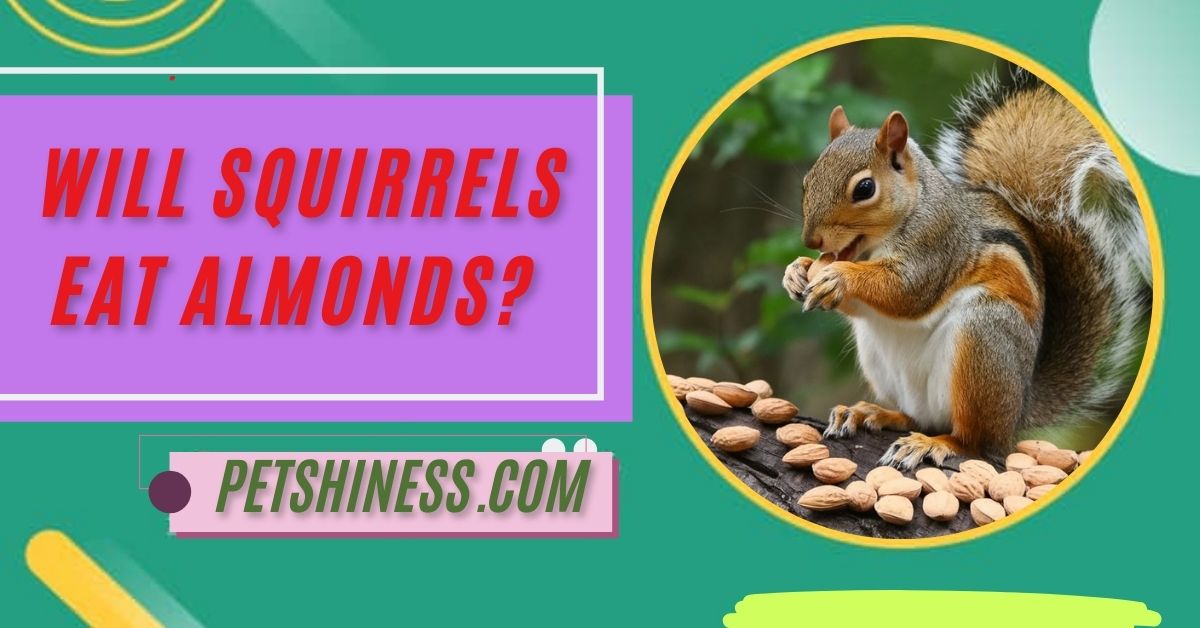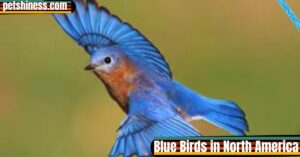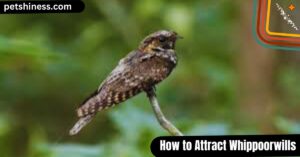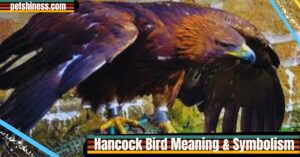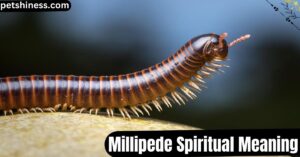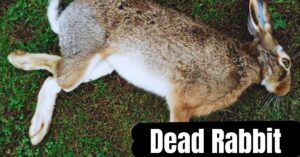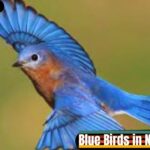Squirrels are adorable creatures with bushy tails and are commonly found in parks, forests, and urban areas. These small mammals are known for their remarkable ability to store and stash nuts, ensuring they can survive during lean times. Their diet is diverse, including nuts, seeds, fruits, fungi, and even small animals.
When you think about the dietary preferences of squirrels, almonds come to mind as a nutritious treat packed with healthy fats, protein, fiber, vitamins, and minerals. But do squirrels actually enjoy these nuts? Given their omnivorous nature, almonds are certainly a food item they might encounter, but they don’t typically prioritize them.
In my experience volunteering with wildlife organizations like Footprints Wildlife in Redmond, WA, where I had the chance to feed juvenile squirrels, I’ve learned a lot about their eating habits. While squirrels often enjoy a variety of nuts, including pecans and tree nuts, almonds aren’t always at the top of the list. They prefer natural food sources they can easily find in their habitat, such as acorns.
However, squirrels will nibble on almonds if they are available, especially if they’re presented as a snack in your yard. It’s important to understand that, like all wildlife, squirrels need a balanced diet that meets their energy needs, especially when they are engaged in their daily acrobatics or foraging for food. So, while almonds can be part of their diet, they’re just one of many treasures squirrels can enjoy.
Do Squirrels Eat Almonds?
Yes, squirrels do eat almonds! In fact, almonds are a treat many squirrels enjoy. They are packed with fats, proteins, and vitamins, making them a great source of energy. Squirrels, like many mammals, are drawn to foods that give them a boost of energy, especially in the colder months when food is scarcer. The crunchy texture of almonds also satisfies their natural gnawing instinct.
However, even though squirrels love almonds, it’s important to feed them these nuts in moderation. Too many almonds can cause digestive issues due to their high-fat content. In the wild, squirrels don’t typically eat almonds, but they might find them if humans leave them out as a food source. While almonds are safe for squirrels to eat, it’s best to offer them as an occasional treat rather than a regular part of their diet.
Almond-Eating Mammals
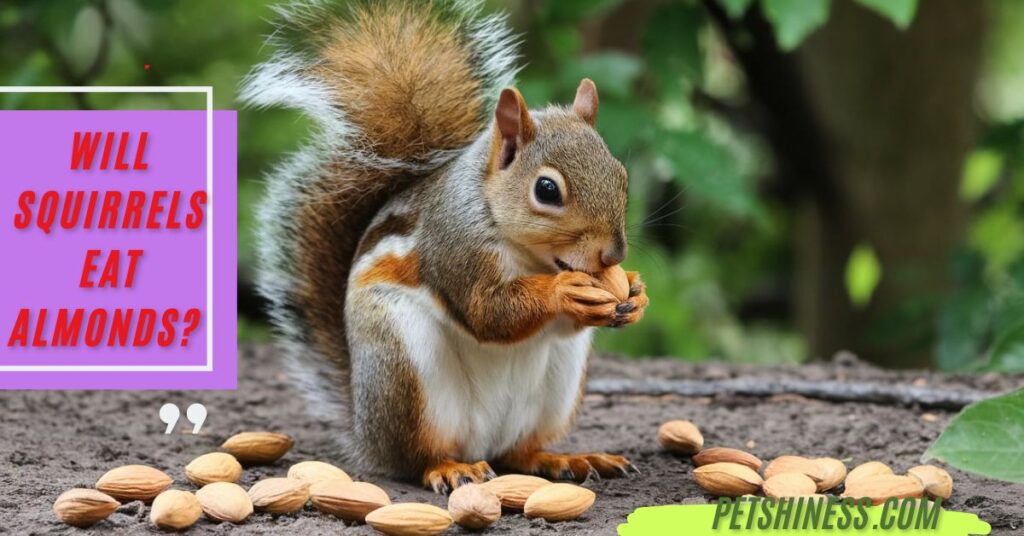
Squirrels are not the only mammals that enjoy almonds. Many mammals, including chipmunks, rats, and even some deer, eat almonds. Almonds provide a rich source of energy due to their high fat and protein content, making them attractive to a variety of small mammals. For animals like squirrels, who are always on the move, such foods help keep them energized throughout the day.
In fact, almonds are so popular among mammals because of their nutritional value. Chipmunks, for instance, often gather nuts like almonds to store them for the winter months. These foods help sustain them during the colder seasons when food is more difficult to find. Therefore, almonds are a valuable food source for many creatures beyond just squirrels.
Almond Eaters in the Bird World
Squirrels aren’t the only animals that enjoy almonds. Many bird species also feed on almonds. Birds like crows, woodpeckers, and jays are known to eat almonds in the wild. For these birds, almonds provide essential fats and proteins that help them maintain energy, especially in winter when other food sources are scarce. Birds typically prefer raw almonds over roasted ones, as roasting can remove important nutrients.
Feeding almonds to birds is a great way to attract them to your backyard, but remember that like squirrels, moderation is key. Too many almonds can disrupt their natural feeding habits, just as it can for mammals. Offering a variety of seeds, fruits, and nuts, including almonds, ensures that birds get a balanced diet, allowing them to thrive in your yard.
What Animals Eat Almonds?
A variety of animals, both mammals and birds, enjoy eating almonds. As we’ve mentioned, squirrels, chipmunks, and rats are all fond of almonds. These animals are attracted to the high-fat content of the nuts, which helps them stay energized. Birds, including crows, jays, and woodpeckers, also eat almonds. The protein-rich nuts give them the necessary fuel for their activities, particularly in colder weather when natural food supplies may be low.
Other animals, such as deer and raccoons, may nibble on almonds when they come across them. In fact, almonds are considered a rare treat for many animals in the wild, as they tend to be more abundant in areas where humans live. While almonds are not a primary food source for most animals, they are still a highly valued snack that many will enjoy if given the chance.
What Nuts Can Squirrels Not Eat?
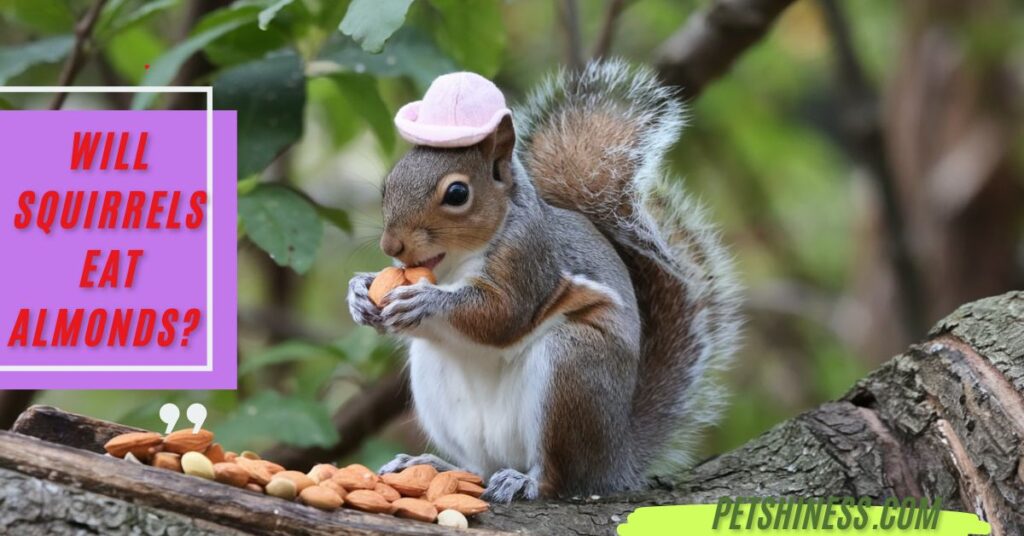
While squirrels love eating nuts, not all nuts are safe for them. Some nuts, such as walnuts and pecans, should be avoided. Walnuts, for instance, contain a high level of fat, which can lead to obesity and other health issues in squirrels if consumed in large quantities. Pecans are also high in fat and can cause similar problems for squirrels. Additionally, the shells of these nuts are often thicker and harder to crack, which could lead to dental problems.
Another nut to avoid is the macadamia nut, which is toxic to squirrels. Macadamia nuts contain compounds that can cause tremors and other neurological issues in small mammals. It’s always important to research the safety of different foods before feeding them to wildlife. While squirrels can safely enjoy almonds, other nuts should be limited to ensure their health and well-being.
What Foods Are Toxic to Squirrels?
Some foods are toxic to squirrels and should never be fed to them. Chocolate is one of the most dangerous foods for squirrels. It contains theobromine, which can cause serious health problems or even be fatal to small mammals. Other foods to avoid include onions and garlic, which can upset a squirrel’s stomach and lead to gastrointestinal distress. Additionally, avocados contain persin, a toxin that can cause heart failure in squirrels.
Squirrels also should not be fed processed foods like junk food, as they contain unhealthy fats, sugars, and preservatives that can harm their digestive systems. It’s important to stick to natural foods that are safe for squirrels, like fruits, seeds, and nuts (in moderation), to ensure they live a healthy, happy life.
Considerations for Feeding Squirrels Almonds
If you plan to feed squirrels almonds, there are a few things you should keep in mind. First, always choose raw almonds over roasted almonds. Roasted almonds may contain added salt or other harmful ingredients that can harm squirrels. Additionally, make sure to chop the almonds into smaller pieces to prevent choking. Offering almonds in small portions is also important to avoid overfeeding them, as too many almonds can lead to weight gain and digestive issues.
Feeding squirrels should be done responsibly. While almonds are a nutritious snack, they should never replace a squirrel’s natural diet. The best way to help squirrels is to provide them with food that is part of their regular diet, such as acorns, seeds, and fresh fruits. Almonds should be an occasional treat, not a daily offering, to maintain their health.
What Is the Best Thing to Feed Wild Squirrels?
Wild squirrels thrive on a natural, varied diet that helps them stay healthy. The best foods for wild squirrels include:
- Acorns
- Berries
- Sunflower seeds
- Apples
These foods provide essential nutrients that squirrels need, such as fats, proteins, and vitamins. Acorns are particularly important because they help squirrels store fat for winter, which is crucial for surviving colder months.
Feeding wild squirrels should be done with care. It’s always best to offer foods that mimic their natural diet. Avoid sugary or processed foods, which can harm their health. Fresh fruits, vegetables, and nuts (like almonds in moderation) are excellent choices for wild squirrels.
What to Leave Out for Squirrels?
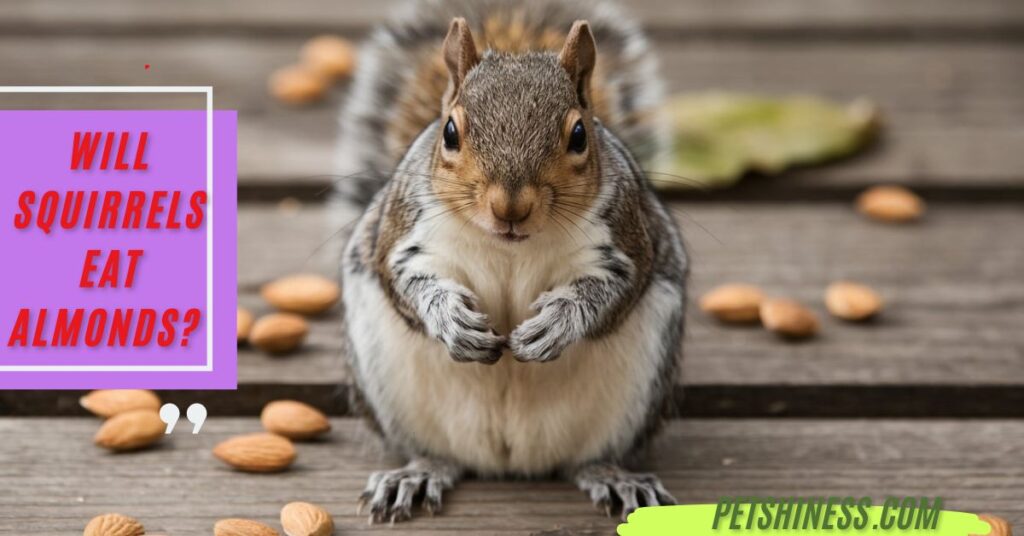
If you want to attract squirrels to your yard, there are several foods you can leave out. Fresh fruits like apples, pears, and berries are great options. These foods provide essential vitamins and hydration for squirrels. You can also leave out sunflower seeds, which squirrels love to snack on. Another good choice is unsalted peanuts, which provide protein and fat.
It’s important to leave these foods in moderation and avoid offering too much at once. Overfeeding squirrels can make them dependent on humans for food. It’s best to place food in areas where squirrels can find it naturally, such as on the ground or in a squirrel feeder, to encourage healthy foraging behaviors.
What Is a Squirrel’s Favorite Food?
Squirrels have a variety of favorite foods, but some stand out more than others. Acorns are at the top of the list, as they provide squirrels with essential fats and proteins that help them survive through the winter. Other favorites include seeds from sunflowers, pine cones, and berries. These foods give squirrels the energy they need to stay active and healthy.
While squirrels will gladly eat almonds, they prefer foods that are native to their environment. Almonds are considered a treat, not a staple. They will often choose acorns and seeds over almonds when available, as these foods are better suited to their natural diet.
Is Peanut Butter Good for Squirrels to Eat?
Peanut butter is a popular food for many animals, but it should be given to squirrels in moderation. While squirrels enjoy peanut butter, it’s high in fat and calories. If you offer peanut butter to squirrels, make sure it’s unsweetened and unsalted. Too much peanut butter can lead to obesity and digestive problems, so it’s best to use it as an occasional treat rather than a regular snack.
If you choose to feed peanut butter to squirrels, you can spread a small amount on a piece of wood or attach it to a tree for them to enjoy. This gives them a fun way to enjoy the treat while keeping their feeding habits natural. But remember, moderation is key.
Conclusion
Squirrels do indeed enjoy eating almonds, but like all treats, they should be offered in moderation. Almonds are a great source of energy and nutrition for squirrels, especially during colder months when food may be harder to find. However, other foods, like acorns, sunflower seeds, and fresh fruits, are just as important to their natural diet. Always ensure that you feed squirrels responsibly to help maintain their health and well-being.
In addition to almonds, squirrels also eat a wide variety of foods, such as berries, nuts, seeds, and even fungi. It’s essential to consider what’s best for their health and stick to feeding them natural, nutritious foods. If you want to help squirrels thrive in your yard, always
remember to feed them in moderation and provide a balanced diet that mirrors what they would find in the wild.
Frequently Asked Question
Do squirrels like almonds?
Squirrels can eat almonds, but they don’t usually prioritize them in their natural diet. They prefer other nuts like pecans or acorns, which are easier to find in their environment. However, if offered as a snack, they may nibble on almonds.
Are almonds safe for squirrels to eat?
Yes, almonds are generally safe for squirrels in moderation. They provide healthy fats, protein, and fiber, but should be given in small amounts to avoid overfeeding. Always avoid salted or flavored almonds as they can harm squirrels.
What other foods do squirrels eat?
Squirrels are omnivores and enjoy a diverse diet that includes nuts, seeds, fruits, fungi, and even small insects. They rely on natural food sources like acorns, pecans, and tree nuts to sustain them in their habitat.
Can feeding squirrels almonds in my yard be harmful?
Feeding squirrels almonds occasionally is unlikely to harm them, but it’s essential to provide a variety of foods to maintain their health. Overfeeding with almonds or any food could cause them to become reliant on human-provided snacks instead of foraging naturally.
How far do squirrels travel to find food?
Squirrels have a roaming range of about two to five miles. While they rarely venture too far from their nest, they are constantly on the move to find food, storing it in hiding spots for later use. This helps them survive during lean times.
Read Also :
200+ Perfect Squirrel Names That Are Cute and Creative!
Bengal Tabby Mix : Everything You Need to Know
Cat Breeds With Tufts On Ears: A Complete Guide
The Truth Behind Hobbes Bird: Meaning, Quotes & The Calvin and Hobbes Connection

Jerry John ensures petshiness.com runs smoothly and securely. With a passion for tech and a focus on user experience, Jerry manages the site to deliver top-notch content and functionality.
